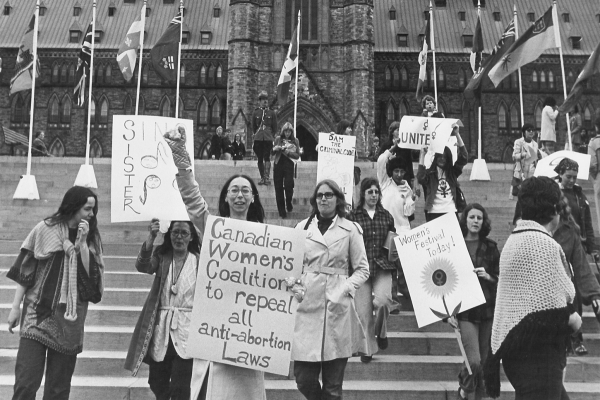Lessons from the 70th birthday of the National Health Service
Among those inspired by the NHS were Canadians fighting for universal healthcare

This summer marks the 70th anniversary of the United Kingdom’s National Health Service (NHS). When it was established in 1948, the NHS was the world’s first universal healthcare system. It quickly became a beacon of what a decommodified public service could be: open to all, free at the point of service and paid out of taxes. Healthcare was dispensed according to need and funded according to ability to pay—an island of socialism, or at least socialization, in a capitalist sea. Among those inspired by the NHS were Canadians fighting for universal healthcare.
Why is this anniversary being celebrated thousands of kilometres away important? First, it reminds us where our victories originate. Like anything that improves the lives of the majority, the NHS was not gifted from on high by a well-meaning elite but fought for and won from below. Its roots lie in part in worker mutual aid and self-organization: unions and associations in Welsh mining towns ran health insurance plans for workers and their families as early as the late 19th century. This small-scale insurance was both proof that socialized medicine could work and a bedrock for working class agitation for large-scale, universal healthcare. When doctors—used to serving the wealthy and often wealthy themselves—protested against the coming NHS, Aneurin Bevan, the UK’s first minister of health and a driving force behind the service, responded, “We’re going to Tredegarize you!” after the Welsh mining village where he was born.
The story of the NHS also reminds us that our victories are never complete. The NHS is not and was not perfect. It began as a patchwork cobbled together from the post-war ruins and inadequate pre-war services. It grew in spurts, struggling to provide the same level of care to rich and poor, white and racialized—to overcome baked-in inequities.
The NHS demonstrates that decommodification, taking something off the market, is but the first step; it should be followed by democratization that gives meaningful control to workers, users and communities. While there were brief experiments in and plans for democratization in the 1970s, that would have allowed community groups and councils to have meaningful input into system planning, the NHS has largely remained hierarchical, both in terms of management-worker relationships and the doctor-patient relationship.
In fact, the NHS has somewhat followed the trajectory of post-war social democracy itself, slowly drifting towards the market. Healthcare in the UK was reborn in neoliberal guise over the course of the 1990s. During this decade, reforms hatched by the likes of Margaret Thatcher ended up being implemented by Tony Blair’s New Labour. Since the NHS was too popular to be put on the market, the market was introduced into the NHS. The bizarre “internal market” created much needless contracting between units of the same national system, introduced administrative waste, made it difficult to plan and generated opportunities for cutbacks. Today’s NHS remains one of the most popular British institutions, more popular than the monarchy and the national football team, but one desperately in need of being reinvigorated.
And this leads to the final lesson of the NHS: it demonstrates the need for big, audacious demands around the economy. The NHS is so popular in part because its creation was such a rupture with the status quo. For us in Canada today, such audacity means at minimum fighting to complete the vision of universal and comprehensive public healthcare, namely pharmacare and dental care that is universal, free for everyone at point of service and paid out of taxes.
But that is not enough. Nye Bevan, as he was affectionately called, foresaw a second NHS soon after he was done with the first—this time a National Housing Service. Seven decades later and a decade into a galloping affordability crisis in so many cities across the globe, from Hong Kong to London, from San Francisco to Amsterdam, from Sydney to Vancouver, the idea seems at once alien and far-fetched as it does necessary—much as universal healthcare would have seemed in the early 20th century. Taking housing off the market, treating it as a right much akin to healthcare, is the only durable way to stop the spiralling housing emergency facing cities and entire regions.
For every existing NHS, let us demand two others, decreasing our reliance on the abstract forces of the market and increasing our reliance on each other. On this 70th anniversary of the founding of the NHS, let’s remember its lessons, its shortcomings and its promise.
Michal Rozworski is a union researcher and writer. One of Canada’s leading young Left economists, he blogs at Political Eh-conomy.
This article appeared in the Summer 2018 issue of Canadian Dimension (Indigenous Resistance).










